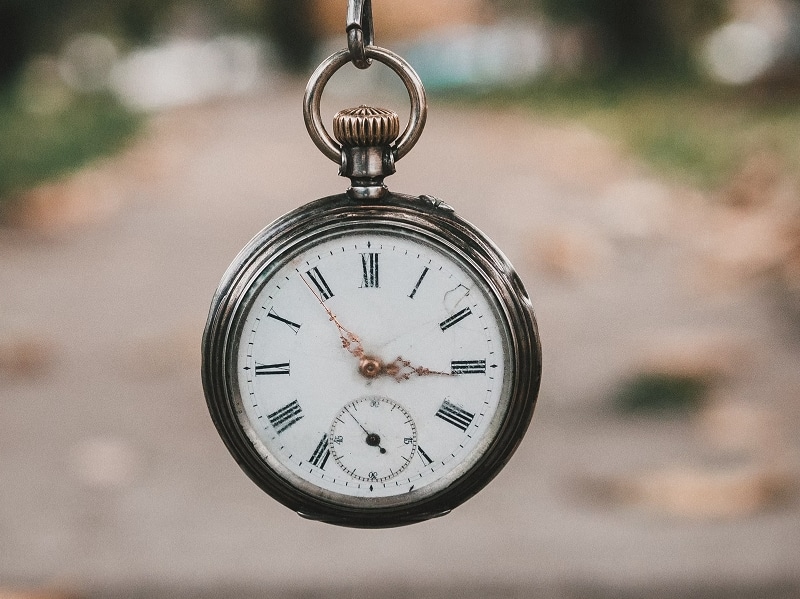Does your mind tend to leap and swing all over the place? Past, present, future – so much to think about! Buddhists call this leaping and swinging “Monkey Minds.”
It is so important for us to live in the present – the current moment. I know you have probably heard all the phrases – “Stop and smell the roses”, “All you have is the here and now”, “Live in the moment” and so many others. Maybe there just might be some truth to all that hullabaloo after all.
There are so many important reasons why and ways to stay in the present. I plan on covering just some of these reasons and ways. This is by no means an exhaustive list.
Contents
What exactly is living in the present?
Living in the moment, or being in the present, is exactly as it sounds – focusing on what is going on at this exact moment in time. Not ruminating about the past or worrying about the future. I like the way this article from Psychology Today puts it – being present is “a state of active, open, intentional attention to the present.”
Savoring the moment is quite important. If your mind is in the present, it is harder to ruminate on the past or worry about the future.
Present-minded people are more likely to take compliments, criticisms, and any other comments at face value. They don’t overthink or take things too personally. They tend to be the ones that think before acting.
Why should I live in the present?
There are so many many reasons why you should focus on the present. It will create an overall happier healthier you. Here are 7 benefits to why you should live in the present more:
- Raising your self-esteem.
- Helps you cope better with pain.
- Reduces stress.
- Increases your ability to deal with negative emotions.
- Numerous positive health impacts, including lowered blood pressure.
- Makes you more empathetic.
- Decreases anxiety.
We discussed these benefits more in-depth in our article on the benefits of mindfulness.
As I said, these are just a few reasons to live in the present. And, honestly, who couldn’t benefit from less stress and anxiety, simply by choosing not to focus on the negative situations?
Living in the moment and mindfulness
Have you heard of the type of therapy called Dialectical Behavior Therapy? I have been in therapy for almost 25 years. DBT has been taught and retaught to me. This type of therapy focuses on gaining more control over your thoughts and emotions.
Dr. Marsha Linehan developed and wrote the original books on Dialectical Behavior Therapy. You can read more about Dr. Linehan and her career on the University of Washington’s website where she retired in 2019.
Mindfulness (a fancy word for being in the moment) is one of the core skills taught in Dialectical Behavior Therapy.
The other three core skills are also extremely valuable tools to help you lead a happy, healthy, successful life. They are Tolerance, Emotion, Interpersonal.
Dialectical Behavior Therapy was originally developed to treat suicidal and self-harming people. However, it is now widely used to treat a wide variety of mental illnesses. Going off of what I have learned through the years, DBT can teach valuable tools to anybody willing to learn. I do not believe you need to have a mental illness to use these helpful skills.
Ways to live in the present
I have compiled a list with just a few skills you can use to live in the present. I am using the top seven suggestions that are most commonly suggested.
1. Try these breathing exercises
Taking some deep breaths, according to Psychology Today, is one of the most popular ways for people to center themselves and bring them back to the present. You focus on the feeling of your lungs filling with oxygen; your diaphragm expanding. Feel the way the air enters your nose and exits through your mouth.
It helps if, while you are breathing, you count or have a mantra that you say in your head. For example “This is now” – in. “Be in this moment” – out. Or you can inhale and count to three (or whatever number you choose) and exhale counting again.
This is one of the easiest ways to center yourself. It is free, you need no equipment or anything, and you can do it anytime, anywhere.
2. Don’t dwell on the past
Acknowledge that you have thoughts about the past and the future. It is necessary to think about this at times. You need to look back to the past, but to learn from your mistakes or relive happy memories, etc. Do not linger on the negative and beat yourself up. You also need to look to the future in order to be prepared for life.
You can remember and plan, but do not dwell. Think about the past or future in small doses. In other words, don’t stay stuck focusing on what you can’t control. Focus on the present the majority of the time.
3. Try not to zone out
Get into a comfortable, relaxed position. Sitting up is typically preferred over laying down so you don’t fall asleep. Focus on your surroundings. What color are the walls? Are there any pictures? What do you smell? Use all five of your senses.
The more elaborate and deeper you get into using all five senses, the more in the present you will be. It can be difficult for your mind to wander to memories of the past or worries for the future when you are so hyper-focused on your surroundings.
If you find yourself starting to go into autopilot mode or zoning out, doing this exercise will help snap you back to the present. It can also help calm you during a panic attack or in other anxiety-provoking situations.
4. Go for a mindful walk
Right in line with using your five senses while in a relaxed position, using your five senses fully while out on a nature walk or doing some other activity can help keep you living in the present.
Look all around you and be aware of what is going on. Are the leaves changing colors? Can you hear the snow crunching beneath your feet? Do you hear kids’ laughter?
Taking a mindful walk helps you not only live in the present, but it can also be very relaxing. It can also have many health benefits, as we discussed in this article. Any type of movement, such as yoga, can replace the walk. Just get your body moving and make sure to pay close attention to everything around you.
5. Try a “mindful body scan”
Progressively focusing intently on your different body parts helps you not only to refocus your mind and bring it to the here and now, but you will also become more aware of your body and its needs.
Starting with your toes, scrunch them and release. After you become fully cognizant of your toes, move to the arch of your foot. Then your ankles. Continue tensing and relaxing your muscles as you work your way up to the top of your head.
When you reach a different body part, become conscious of how that particular body part is feeling. Is your knee sore? Does your abdomen feel taught and muscular? Is your stomach in knots, or do you have butterflies flitting about?
6. Enjoy the moment more
You’re sitting in the waiting room at the dentist’s. What are you doing? Are you being mindful and living in the present – taking in all the sights, scents, sounds, etc? Or are you simply wasting your time waiting?
Instead of just waiting and letting time pass you by, be present in that moment. Is there a fish tank in the waiting room? What about any plants? Do you hear the dentist’s drill? Do you have a book or magazine you can get lost in?
Don’t spend your days waiting for something to happen. Enjoy what is happening in the now!
7. Create a system
It is so easy for us to get lost in the day-to-day shuffle of life. This means we need to create an arrangement to help remind us to come back and live in the present.
You could set an alarm on your phone or watch reminding you to refocus. You could have someone remind you that you need to be present.
Basically, we need to make a commitment to ourselves, and an accountability partner if necessary, that we will live in the present. It may take multiple reminders throughout the day to help keep you focused.
That is perfectly fine.
💡 By the way: If you want to start feeling better and more productive, I’ve condensed the information of 100’s of our articles into a 10-step mental health cheat sheet here. 👇
This Cheat Sheet Will Help You Be Happier and More Productive
Thrive under stress and crush your goals with these 10 unique tips for your mental health.
Wrapping up
Living in the present can be a very rewarding experience and a great tool for you to utilize. It won’t always be the easiest one, but the effort is well worth it. Your mind will start to wander at times while you are doing these exercises. That’s okay. Allow yourself to think about the thought that pops in your head, then refocus yourself to the present. It will take practice and patience with yourself. But you can do it if you put your mind to it!
Are you good at staying in the present, without getting your mind bogged up by the future or the past? Or do you want to share a tip that has helped you stay in the present more? I’d love to hear from you in the comments below!


